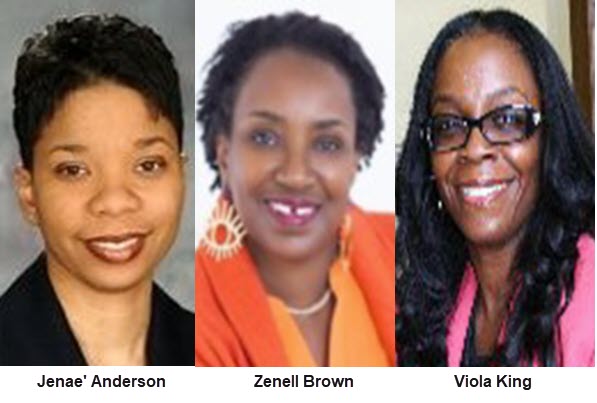Abstract
Excerpted From: Jenae' Anderson, Zenell Brown and Viola King, Black Families Overlooked, Misunderstood, and Underserved in the Family Courts, 56 Family Law Quarterly 77 (2022-2023) (66 Footnotes) (Full Document)
 Racial justice is critical to the American justice system and the mission to advance justice for all. As stakeholders examine efforts to create fairness in the justice system, it is imperative that internal standards and practices are critically examined. Implicit bias and racial inequality must be addressed before true justice reform can take place for marginalized communities. Stakeholders must examine the implicit racial bias of the jurist who hears cases and renders rulings, the role of alternative dispute resolution in family law cases, and whether virtual hearings afford minority communities better access to justice. Judges sitting in courts specializing in family law require not only knowledge of the law but also an understanding of people, cultures, and how to support them with sensitivity. Scientific research has shown that implicit bias might affect the work of judges, referees, and magistrates. Studies show that even people consciously committed to equality may still hold unconscious stereotypes that influence their actions.
Racial justice is critical to the American justice system and the mission to advance justice for all. As stakeholders examine efforts to create fairness in the justice system, it is imperative that internal standards and practices are critically examined. Implicit bias and racial inequality must be addressed before true justice reform can take place for marginalized communities. Stakeholders must examine the implicit racial bias of the jurist who hears cases and renders rulings, the role of alternative dispute resolution in family law cases, and whether virtual hearings afford minority communities better access to justice. Judges sitting in courts specializing in family law require not only knowledge of the law but also an understanding of people, cultures, and how to support them with sensitivity. Scientific research has shown that implicit bias might affect the work of judges, referees, and magistrates. Studies show that even people consciously committed to equality may still hold unconscious stereotypes that influence their actions.
The courts' technological pivot during the COVID-19 pandemic has made access to justice available at our fingertips. Attorneys and parties can dial into hearings using a web-based conferencing platform like Zoom, arguably making participating in court proceedings easier. However, what happens when the parties face challenges such as lack of broadband access, lack of devices to access web-based conference platforms, or lack of computer knowledge to access hearings, among a host of other problems? Are web-based conference platforms the most effective way to achieve justice? The pros, cons, and possible solutions have been identified as they relate to using web-based conferencing platforms to access justice. While the research examines the challenges with conducting Zoom hearings, further analysis is needed of the disparity of challenges in Black communities. This writing explores those challenges, racial disparities in access, and the impact on Black people and access to family court.
Finally, mediation is effective in resolving custody and parenting time disputes. In fact, mediation is a way to preserve positive relationships and garner adherence to parenting time agreements, which leads to a better well-being for the children involved. However, access to affordable mediation services is limited in many states. Additionally, there are insufficient mediation trainings and materials on the history and dynamics of Black families and a lack of Black mediation professionals. The net result is a lack of adequate mediation opportunities for Black parents.
Each section of this article includes recommendations and models for justice stakeholders to examine internal practices that restrict or deny justice to Blacks in family courts and work toward possible solutions. The authors bring their experience as a Black family law attorney, jurist, and mediator along with their research to raise the issue and propose a path forward.
[. . .]
Diverse representation ensures justice and reflects that it exists and is accessible to all.
The APFM states that the first step is “to advance professional and public awareness” of the representation issue. Capturing and publishing the current racial demographic makeup of family mediators in particular is needed and will help those who champion the issue to document the need for progress and track the progress made. Corporate America is talking about pipelines, mentorship, and sponsorship as ways to increase diversity. These strategies can be used in the mediation profession as well as good next steps. Additionally, organizations can build bridges to allow current dispute practitioners access to business opportunities. Time, talents, and treasures are the needed investments to improve representation.
Jenae' Anderson has been a practicing attorney in the State of Michigan since 2008.
Zenell Brown is an attorney, mediation trainer, and certified diversity professional.
Viola King was previously employed as a Family Division Referee in the Domestic Section and the Juvenile Section of the Third Judicial Circuit Court.


